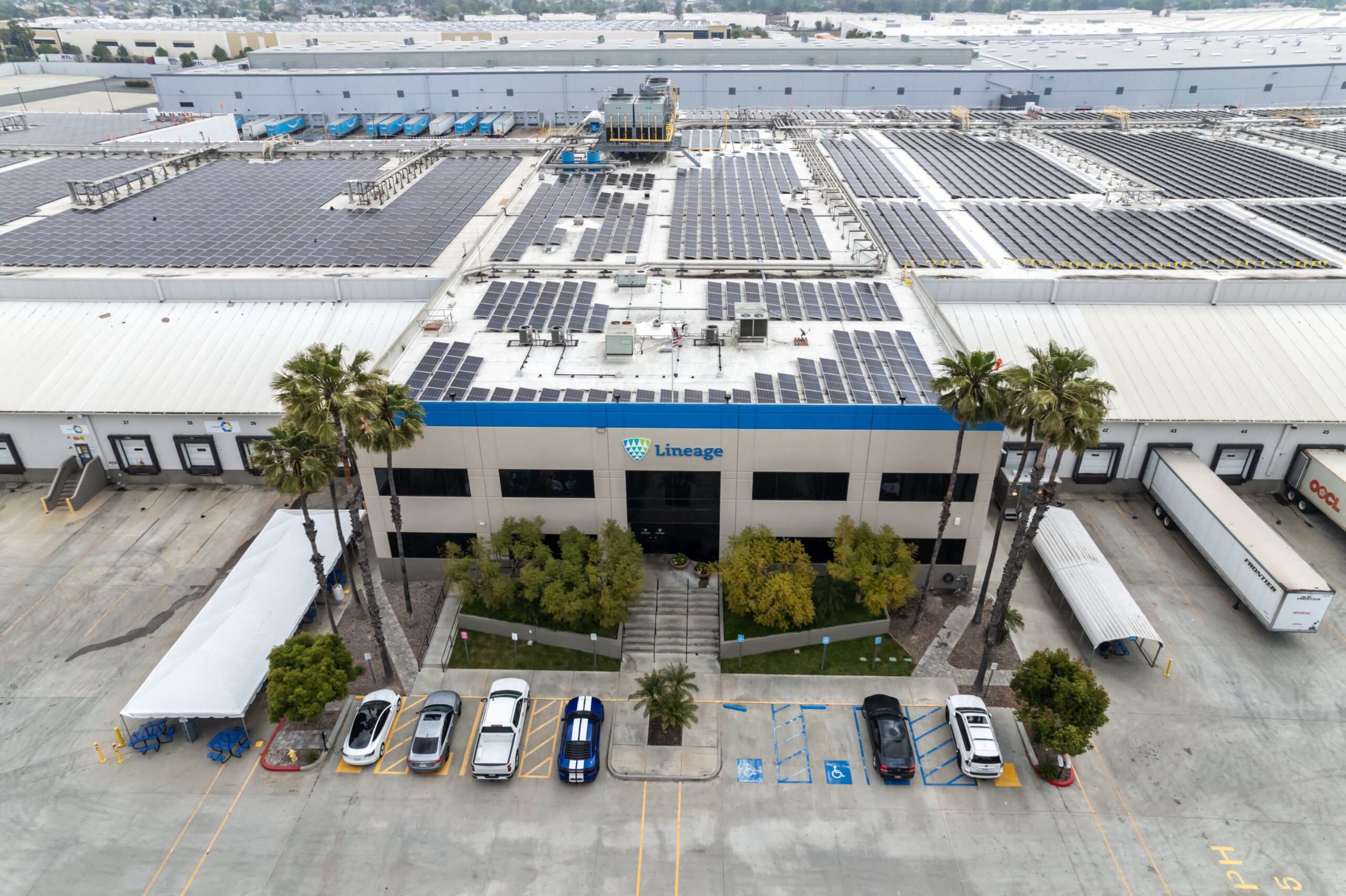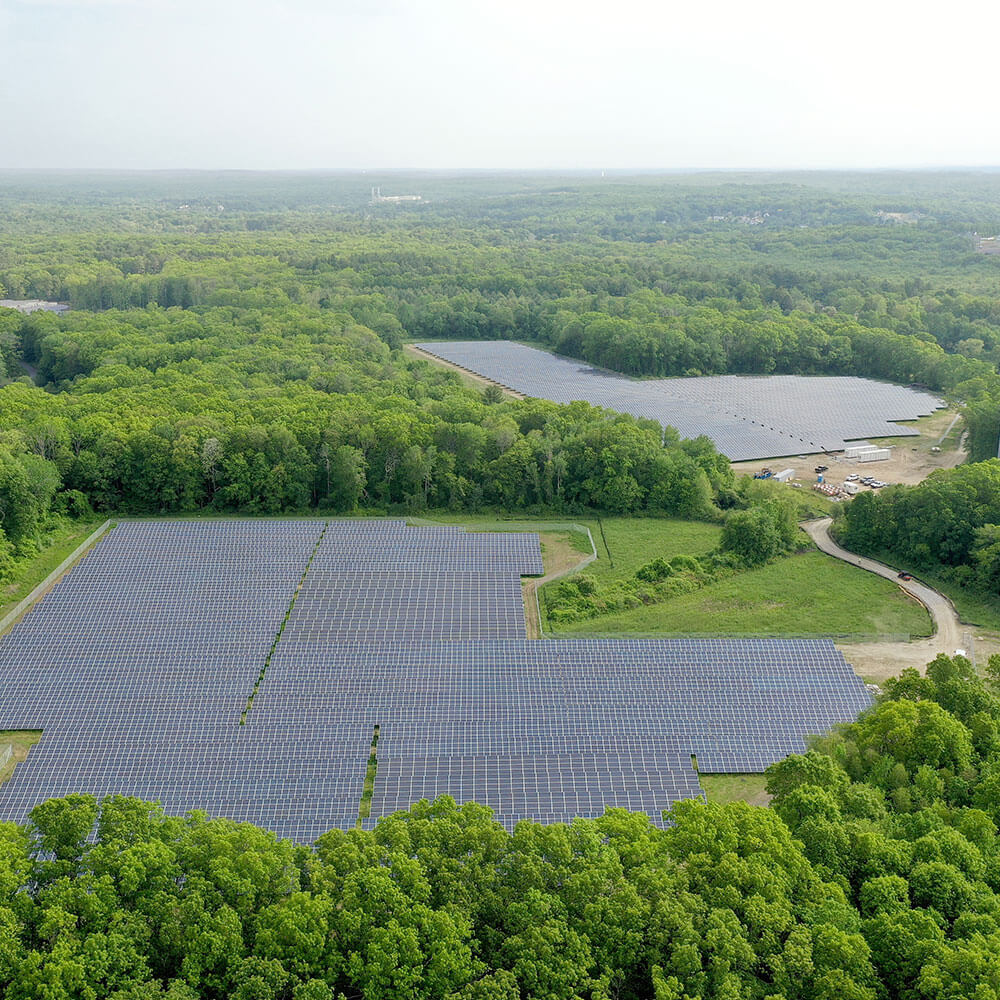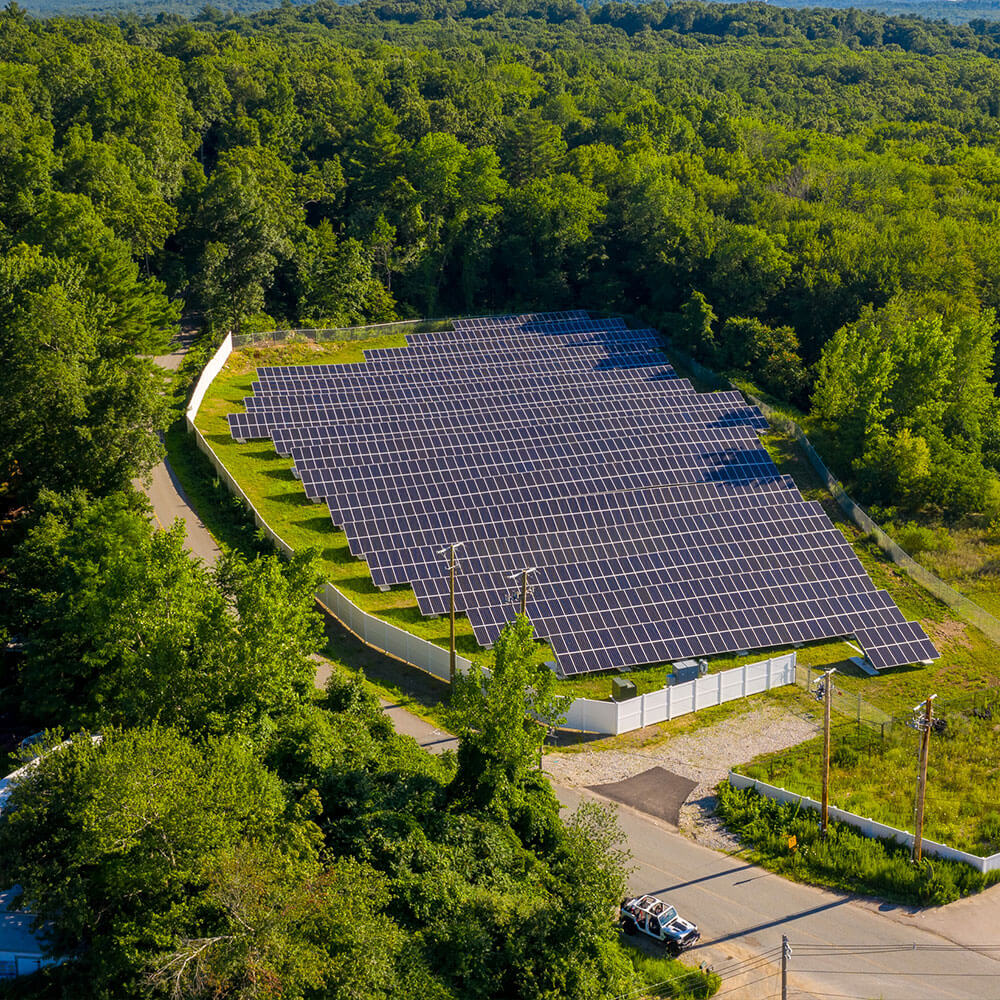Overview
Cold storage facilities are among the most energy-intensive operations, with refrigeration alone accounting for 60%-90% of total energy consumption. A global leader in temperaturecontrolled logistics sought to enhance energy efficiency and sustainability across its network while maintaining operational reliability. Their mission to help feed the world while achieving net-zero carbon emissions by 2040 underscores the importance of integrating renewable energy solutions, such as solar, to reduce greenhouse gas emissions and control energy costs.
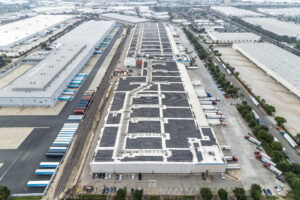
Challenge
This project serves as a scalable model for cold storage and logistics providers looking to transition to sustainable operations. By integrating renewable energy solutions, the company not only advances its net-zero commitments but also reinforces its role as an industry leader in energy innovation.
Solution
In partnership with Catalyze, the cold storage provider installed a 5.6 MW rooftop solar system at its Mira Loma, California facility—a major step toward reducing reliance on non-renewable energy. This large-scale system now powers the temperature-controlled warehouse with clean, renewable electricity, driving down operational costs and enhancing energy independence. Over its 25-year lifespan, the installation is projected to deliver energy savings of approximately $10 million.
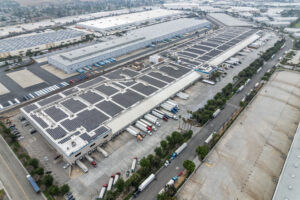
Result
This strategic investment supports the company’s long-term sustainability goals and positions it as a leader in decarbonizing the global cold chain industry. By transforming previously unused rooftop space into
a high-performing solar asset, the facility gains a reliable, revenue-generating resource that enhances both cost stability and environmental performance.
Catalyze played a key role in delivering this solution, leveraging its deep expertise in commercial and industrial (C&I) solar to ensure seamless project execution. Importantly, the project also utilized the 10% Investment Tax Credit (ITC) adder for Energy Communities under the Inflation Reduction Act—an incentive aimed at accelerating clean energy adoption in regions historically reliant on fossil fuels.
